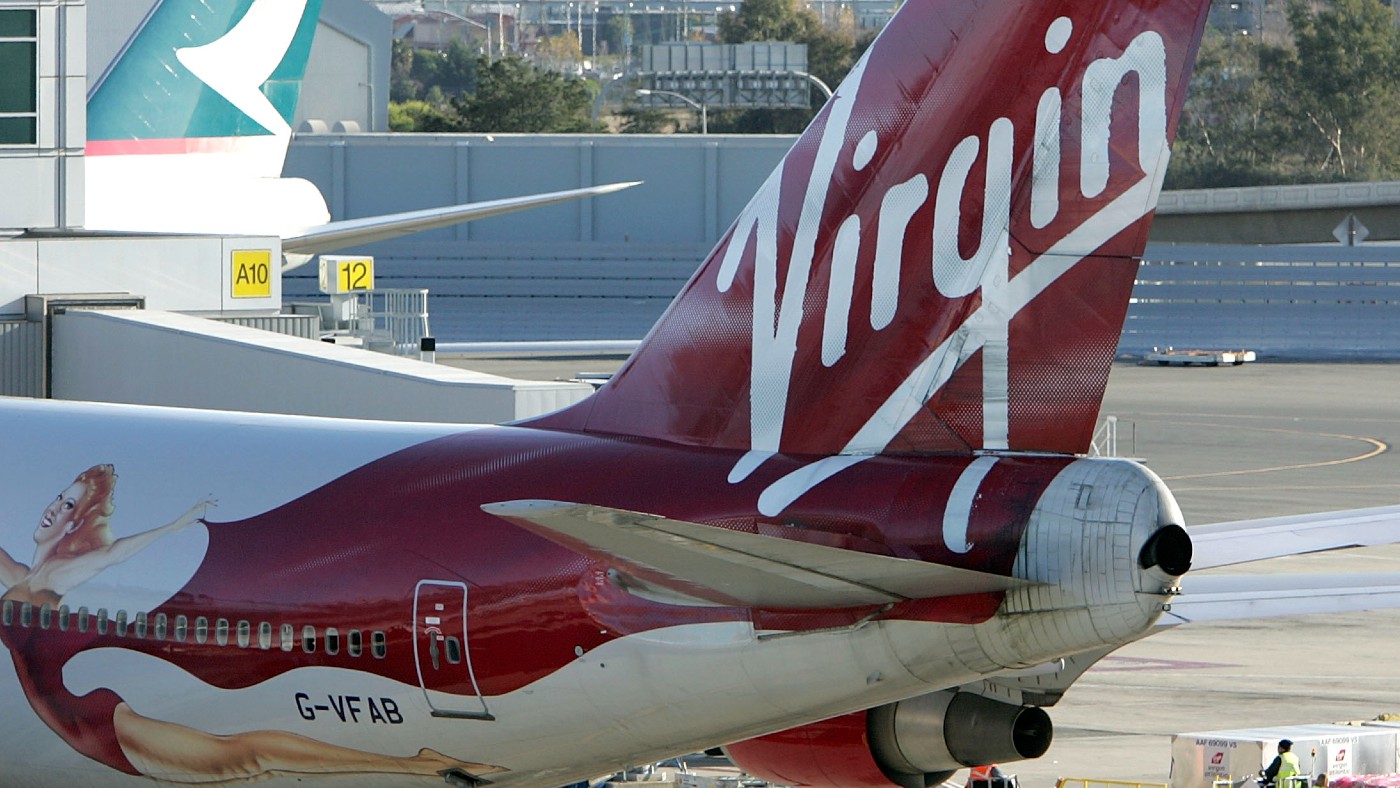Coronavirus: is it safe to travel without insurance?
The official advice says no - but some people may decide to take a calculated risk

A free daily email with the biggest news stories of the day – and the best features from TheWeek.com
You are now subscribed
Your newsletter sign-up was successful
British travellers hoping to travel to one of the dozens of countries soon to be excluded from the UK’s 14-day quarantine rules may face one more hurdle before they head off on holiday: a frustrating search for insurance.
“The situation with travel insurance is complex,” says MoneySavingExpert, with many insurers refusing to offer any cover and others specifically excluding claims related to the coronavirus pandemic.
For some, that will defeat the whole purpose of insurance. “Three-quarters of Brits say they will not take out a policy if Covid-19 cancellations are not covered,” says The Telegraph.
The Week
Escape your echo chamber. Get the facts behind the news, plus analysis from multiple perspectives.

Sign up for The Week's Free Newsletters
From our morning news briefing to a weekly Good News Newsletter, get the best of The Week delivered directly to your inbox.
From our morning news briefing to a weekly Good News Newsletter, get the best of The Week delivered directly to your inbox.
Can you travel without insurance?
The Foreign Office strongly advises against it. “Make sure you have appropriate insurance for overseas travel, and purchase it as soon as you book your travel,” says the Gov.UK website.
However, says The Independent’s travel correspondent Simon Calder, “you might, after careful thought, rationally decide not to insure if you are travelling within Europe”.
The main benefit of travel insurance is to pay for emergency medical treatment, Calder argues, but in the EU you’re unlikely to end up out of pocket.
A free daily email with the biggest news stories of the day – and the best features from TheWeek.com
“Until the end of 2020, British travellers are covered by the European Health Insurance Card (Ehic) scheme, offering treatment in public hospitals on the same basis as local citizens,” he explains.
Outside of Europe, healthcare may be more expensive - and potentially ruinously so. The Seattle Times reports that one Covid-19 survivor was handed a 181-page hospital bill that came to $1,122,501.04 (about £900,000).
What if you have to travel?
Part of the reason that insurers have withdrawn cover is that the Foreign Office is still advising against all but essential travel to all destinations.
“For as long as the FCO’s advice remains in place, many policies won’t cover you for anything if you choose to travel – from lost baggage to life-threatening injuries,” Which? says.
However, there are a few exceptions, “and your insurance may also remain valid if your trip’s deemed ‘essential’”, adds MoneySavingExpert. “So if in doubt, check with your insurer.”
What about cover for holidays?
The Foreign Office is expected to change its advice within days, when quarantine rules are relaxed for travellers returning from many destinations. But finding insurance may still be a challenge.
“While most [policies] will cover treatment for illness and injury while overseas, not all will do so for coronavirus-related illness,” says the BBC. Even if you have an annual policy, renewals “may now be unavailable, or have coronavirus exclusions”.
Annual policies issued before March - when the FCO first warned against non-essential travel abroad - are likely to reactivate when the government advice changes, but some “may have a general exclusion for claims triggered by pandemics”, says The Independent’s Calder.
Policies including coverage for Covid-19 treatment are beginning to appear on the market, and more are likely to appear as demand increases. “Staysure has a policy for medical cover only”, starting at £9 per trip, but “premiums are likely to be ten or 20 times higher” for people with pre-existing conditions, according to Calder.
What if you have to cancel?
Staysure’s policy will cover medical bills, but won’t reimburse holders for the cost of a cancelled trip if they have to self-isolate. Nor will it pay for extra accommodation if they’re turned away from their return flight for failing a temperature check.
Indeed, very few policies offer such protection, meaning people “face considerable financial risk if they cannot travel because of a Leicester-style second lockdown or if the area in which they are staying is closed down again”, The Guardian reports.
Trailfinders is an exception to the rule. “Uniquely, among policies we’ve seen”, says Which?, this policy will pay out “if you have to cancel a holiday because you catch the virus, or are personally ordered to self-isolate or into quarantine because it’s suspected you’ve been exposed”.
The cost varies according to age, but a 40-year-old with a clean bill of health can expect to pay less than £30 for a single European trip or about £155 for an annual policy.
Holden Frith is The Week’s digital director. He also makes regular appearances on “The Week Unwrapped”, speaking about subjects as diverse as vaccine development and bionic bomb-sniffing locusts. He joined The Week in 2013, spending five years editing the magazine’s website. Before that, he was deputy digital editor at The Sunday Times. He has also been TheTimes.co.uk’s technology editor and the launch editor of Wired magazine’s UK website. Holden has worked in journalism for nearly two decades, having started his professional career while completing an English literature degree at Cambridge University. He followed that with a master’s degree in journalism from Northwestern University in Chicago. A keen photographer, he also writes travel features whenever he gets the chance.
-
 How the FCC’s ‘equal time’ rule works
How the FCC’s ‘equal time’ rule worksIn the Spotlight The law is at the heart of the Colbert-CBS conflict
-
 What is the endgame in the DHS shutdown?
What is the endgame in the DHS shutdown?Today’s Big Question Democrats want to rein in ICE’s immigration crackdown
-
 ‘Poor time management isn’t just an inconvenience’
‘Poor time management isn’t just an inconvenience’Instant Opinion Opinion, comment and editorials of the day
-
 Book reviews: ‘We the People: A History of the U.S. Constitution’ and ‘Will There Ever Be Another You’
Book reviews: ‘We the People: A History of the U.S. Constitution’ and ‘Will There Ever Be Another You’Feature The many attempts to amend the U.S. Constitution and Patricia Lockwood’s struggle with long Covid
-
 Why Irish traditional music is having a moment
Why Irish traditional music is having a momentIn The Spotlight Frustrations with isolation and technology credited for reviving 'auld' trad tunes
-
 A not-so-quiet place: Why is no one using headphones in public anymore?
A not-so-quiet place: Why is no one using headphones in public anymore?Under the Radar People are increasingly comfortable with both speakerphone and watching videos (very) out loud
-
 Gas masks and loo rolls: why 'preppers' are on the rise
Gas masks and loo rolls: why 'preppers' are on the riseUnder The Radar Doomsday community has expanded from 'Rambo wannabes' to 'Tesco regulars'
-
 Breathtaking: the Covid drama that may make you scream
Breathtaking: the Covid drama that may make you screamThe Week Recommends ITV three-parter is a 'tour de force' that exposes 'political complacency'
-
 The lasting changes of the post-pandemic dining era
The lasting changes of the post-pandemic dining eraThe Explainer The newest of new normals
-
 How revenge travel is impacting the aviation and tourism industries
How revenge travel is impacting the aviation and tourism industriesTalking Point The surge in travel is a far cry from the previous pandemic years during which travel took a hit
-
 Virgin Atlantic fined for violating Iraqi airspace
Virgin Atlantic fined for violating Iraqi airspaceSpeed Read Airline said the incursions were accidental and caused by the Covid-19 pandemic